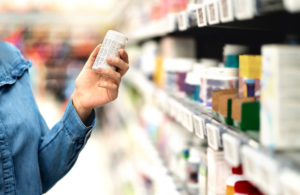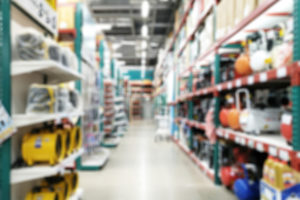What Is a Product Liability Lawsuit?
 When someone is injured by a product that they used in a reasonable and responsible manner, they may be able to file a product liability lawsuit seeking compensation for losses. This type of claim seeks accountability from the designers, manufacturers, warehousers, and/or sellers of the dangerous and defective products.
When someone is injured by a product that they used in a reasonable and responsible manner, they may be able to file a product liability lawsuit seeking compensation for losses. This type of claim seeks accountability from the designers, manufacturers, warehousers, and/or sellers of the dangerous and defective products.
Someone who has suffered an injury after using one of these products as instructed may file a lawsuit based on various damages. There are several types of product liability lawsuits, but most have the same core requirements for filing a claim.
Who Can File a Product Liability Lawsuit?
You might qualify for a product liability lawsuit if:
- You used a defective product.
- You used the product the way it was intended to be used.
- A physical or financial injury (like property damage) occurred.
- This injury was caused by the defective product.
If you meet the above criteria, you should speak with a product liability lawyer to see if you are owed money.
What Kind of Product Liability Compensation Is Available?
A defective product can cause serious injuries that may have long-term effects on your everyday life. The more extensive and limiting the injuries are, the more compensation you may be owed.
A product liability lawsuit may seek damages such as:
- Emotional anguish
- Lost income
- Medical expenses (past, present, and future)
- Pain and suffering
- Property damage
How Long Does It Take to Settle a Product Liability Lawsuit?
Many factors are at play in a product liability lawsuit, so the exact length of the case will vary. A dangerous product can affect anyone who uses it, so some product liability cases turn into class action lawsuits that involve thousands of people. Fortunately, many individual product liability cases — which the attorneys in our network file — are resolved in as little as 90 days.
What Are the Most Common Types of Product Liability Cases?
Because a defect can occur at any point in a product’s design, manufacturing, storage, or distribution, not all product liability cases look the same. Each stage in the process presents different factors that could affect the quality of the product.
Though the details vary, most product liability cases fall under one of the following categories.
Defective Design
If the defect is part of the design, then every item produced based on that design will contain the same fault. Product designers are responsible for recognizing and disclosing any potential risks associated with their products. When they fail to do so, they lay the groundwork for dangerous products to fall into the hands of consumers. Defective design is the first link in the chain of product liability.
Failure to Warn (Marketing Defect)
Part of disclosing a product’s potential risks lies with marketing. For example, if the product contains a harmful chemical, its marketing materials must make consumers aware of the risks. Other products, like sharp knives or chainsaws, are inherently dangerous when used inappropriately; marketers don’t need to warn customers about these more obvious hazards.
Manufacturing Defect
Unlike design defects, which appear in every product based on the defective design, manufacturing defects generally affect a smaller portion of the products that make it to the shelves. In this case, the product was not manufactured according to its intended design and became dangerous.
What Are Some Examples of Product Liability Lawsuits?
Many product liability lawsuits affect large groups of people, prompting product recalls. Here are some examples of product liability cases that you may recognize.
3M® Earplugs
3M’s (now-discontinued) Dual-Ended Combat Arms™ Earplugs (CAEv2) were standard-issue for U.S. military service members deployed to Iraq or Afghanistan between 2003 and 2015. Unfortunately, many veterans would go on to suffer tinnitus and hearing loss after using these earplugs. Nearly 300,000 people have filed lawsuits against 3M over their earplugs, and many have been awarded tens of millions of dollars.
Baby Formula
Cow’s milk-based baby formula and milk fortifier products, such as Enfamil™ and Similac®, can increase the risk of premature and low-birth-weight babies developing necrotizing enterocolitis (NEC), a serious intestinal disease that is fatal in around 40% of cases. Infants who survive NEC may suffer long-term health complications.
NuVasive MAGEC® and Precice® Systems
NuVasive’s MAGEC spinal rods — which are designed to correct spinal problems in children under 10 years old — and its Precice limb-lengthening orthopedics (which are made for adults) both have potential biocompatibility issues that could cause bone abnormalities, cancer, pain, skin irritation, thrombosis, and other adverse side effects.
Paraquat Exposure
Paraquat, a weed-killing herbicide restricted to commercial use due to its high toxicity, has been linked to a significantly higher risk of Parkinson’s disease. The Unified Parkinson’s Advocacy Council determined that chronic exposure to paraquat could make a person 2-to-6 times more likely to develop Parkinson’s.
Philips CPAP and BiPAP Machines
The foam in some Philips Respironics CPAP and BiPAP machines — which are used for treating sleep apnea — can break down and be inhaled by device users. This defect could potentially expose people to dangerous chemicals linked to cancer and other lung conditions.
Roundup® Weed-Killer
Glyphosate, the active ingredient in Monsanto’s Roundup weed-killer, has been classified as a probable carcinogen by the World Health Organization (WHO). People frequently exposed to Roundup – such as farmers, groundskeepers, and landscapers – who later developed cancers like non-Hodgkin’s lymphoma have filed lawsuits against Monsanto.
Talcum Powder
More than 20,000 women have filed lawsuits against Johnson & Johnson® alleging that regular use of Johnson & Johnson’s talcum powder caused these women to develop ovarian cancer. Over $2 billion has been awarded to these women so far, though Johnson & Johnson is appealing many of these verdicts.
TeslaTM
A proposed Tesla class-action lawsuit alleges that the car maker knew about safety issues with its Autopilot and Full Self-Driving driver-assist systems but misled consumers about the safety of its vehicles and what those technologies could do. In February 2023, Tesla recalled nearly 363,000 cars with its Full Self-Driving software after the National Highway Traffic Safety Administration (NHTSA) said the system increased the risk of accidents.
What’s the Difference Between Product Liability and Strict Liability?
 Although product liability and strict liability are directly linked, they’re not exactly the same thing. Product liability is actually one of three types of strict liability.
Although product liability and strict liability are directly linked, they’re not exactly the same thing. Product liability is actually one of three types of strict liability.
Under strict liability, it doesn’t matter if the defendant took steps to make the product safer or not. Regardless of the manufacturer, designer, or seller’s intent, they are still responsible for any defects in their products.
Strict liability encompasses three categories:
- Possession of animals known to be harmful
- Engaging in abnormally dangerous activities
- Product liability, in which all parties involved in a product’s creation and chain of distribution (manufacturer, distributor, retailer) can be liable for a consumer’s injuries
There is no federal product liability law, so regulations vary by state.
What Is the Best Product Liability Law Firm?
There are many product liability law firms, but you need to know what to look for to find the best one.
The best product liability law firms have the following characteristics:
- Contingency-based fees so you never pay upfront or out of pocket
- Experience in product liability law
- Extensive resources and networks
- Free initial evaluations for new cases
- Proven record of winning full compensation for clients
Finding the best product liability attorney may sound difficult, but we can help connect you with an experienced lawyer who may be able to help you pursue compensation.
How Do I Find a Product Liability Attorney?
LawFirm.com has a nationwide network of experienced product liability lawyers with a history of successful client recoveries. Our product liability attorneys offer free case evaluations, and they only get paid if your case results in compensation.
We’d be happy to put you in touch with the best lawyer for your case. Contact us today to learn more.
 Get Legal Help Now
Get Legal Help Now
